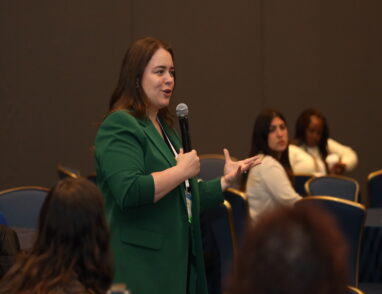Make Your MACRA Goals a Reality
August 15, 2017 · Amy Maciejowski
Medicare payments are changing. MACRA—the Medicare Access and CHIP Reauthorization Act—passed in 2015. And yet two years later, 90% of doctors still don’t know about MACRA.
That’s probably because the final rule isn’t exactly “light reading”: it’s complex and hard to understand. Between patients, procedures and paperwork, who has time to pore over 2,400 pages of rules and regulations?
NCQA does. We want to make it easier for you to understand.
To save you time slogging through the particulars, we’ve provided summaries of the rule since its inception. And we’re now adding “Using a Patient-Centered Approach to Achieve MACRA Goals”—NCQA’s toolkit for navigation. Targeted to primary and specialty care practices, this toolkit explains how the new payment structure will affect practices, includes steps for implementing elements of patient-centered care and explains how to improve your MACRA scores.
Yes, the final rule is lengthy and daunting—but the content is transformative. Medicare payments are now tied to quality measures and will reflect the value of care, rather than the volume of care.
Practices will need to prove they deliver quality care. Some are already equipped to do this; most, though, not so much. A recent survey found that nearly 75% of providers are not ready for MACRA or need help. And that’s where our MACRA toolkit comes in.
The toolkit includes a summary of the rule and explains how the patient-centered medical home (PCMH) model of care aligns with MACRA. Additionally, we provide examples for implementing patient-centered approaches: videos, case studies and specialty-specific learning tools. The toolkit is free to the public.
What does MACRA mean for your practice?
You might know that NCQA-Recognized PCMH or Patient-Centered Specialty Practices (PCSP) receive automatic credit for improvement activities in MIPS. In 2018, that will extend to NCQA-Recognized Patient-Centered Connected Care practices too.
Patient-centered practices perform better in Merit-Based Incentive Payment System (MIPS) categories, too. Evidence shows that recognized PCMH and PCSP practices will have higher scores than non-recognized practices.
Practices following the model are better prepared to receive bonuses for work they’re already doing. NCQA’s toolkit can give you practical methods and steps for implementing the model into your everyday work and receiving higher reimbursements. If your practice hasn’t transformed into a PCMH/PCSP, what are you waiting for? Now’s the time.
This is the tool to get you started.
How do I download the toolkit?
Don’t miss this opportunity to excel. Take a look at macratoolkit.com to see how you can boost your practice. Join the select few who are “in the know” about MACRA and its impact.








